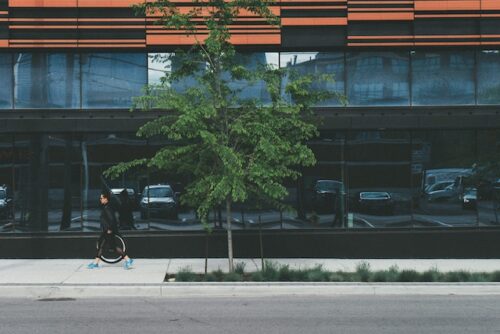If you’ve ever experienced a slip and fall on a public sidewalk, you know that what can appear like a nuisance, can in fact lead to an abundance of hurt and a lot of trouble. Sprains, back injuries, head injuries, and much more may result from stumbling on hazards like cracked pavement or frozen water. Don’t shoulder the consequences of a painful slip and fall all by yourself; contact an Essex County sidewalk accident lawyer today.
General Facts about Slip and Fall Liability
Slip and falls are contained within premises liability law, which deals with when and how much someone should be compensated after suffering an injury. Most often, if you’ve been injured outside your home, you will seek recovery from the owner of the property where you were hurt. You may be entitled to receive economic damages (to cover costs like out-of-pocket medical expenses) and non-economic damages (for harms like pain and suffering) if the negligence of the property owner was at fault.
Customarily in the United States, commercial, private, and state property owners may all be liable in different circumstances. Many states tack responsibility for the care and maintenance of public sidewalks onto commercial and private property owners. Nevertheless, the state and its municipalities retain some level of responsibility as well.
As a rule, slip and fall premise liability cases require you to prove that:
- You were owed a duty of care by the property owner
- The property owner breached this duty of care by not taking away or repairing a hazard
- You were injured because of the presence of the hazard
You should also keep comparative negligence in mind. Under premise liability law, comparative negligence is the principle that both parties in a dispute are responsible for what their negligence contributed. That is to say, if you contributed to your own accident by some act of negligence, your recovery may be reduced by whatever percentage you yourself contributed to the accident.
Sidewalk Maintenance Laws in New Jersey
New Jersey follows the trend in most of the United States when it comes to slip and falls. New Jersey law typically considers the owners of property abutting public sidewalks responsible for maintaining it and keeping it free of hazards. This is particularly true in the case of commercial property owners, as the law believes that, since business owners benefit from the foot traffic public sidewalks provide, they should contribute to the care and upkeep of these.
However, given that these are public sidewalks, there may be cases where government entities are instead responsible. If the sidewalk is adjacent to a road of which a government entity is in charge, that same government entity may be liable for any injuries that occur on the sidewalk. You may even need to file more than one lawsuit. One such case, for example, may be if a sidewalk is adjacent to a city street but also continues over a state highway.


